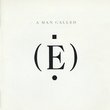| All Artists: Anton Bruckner, Jascha Horenstein, BBC Symphony Orchestra Title: Bruckner: Symphony 5 Members Wishing: 0 Total Copies: 0 Label: BBC Legends Original Release Date: 1/1/1971 Re-Release Date: 6/27/2000 Genre: Classical Style: Symphonies Number of Discs: 1 SwapaCD Credits: 1 UPC: 684911403329 |
Search - Anton Bruckner, Jascha Horenstein, BBC Symphony Orchestra :: Bruckner: Symphony 5
 | Anton Bruckner, Jascha Horenstein, BBC Symphony Orchestra Bruckner: Symphony 5 Genre: Classical |
Larger Image |
CD DetailsSimilar CDs
|
CD ReviewsExcellent Performance of Bruckner's Masterpiece David Rothstein | Shaarei-Tikva Israel | 07/25/2000 (5 out of 5 stars) "First of all I must state that Bruckner's 5th has always been a special favourite of mine (I have 7 performances including 2 of Jochum). In my humble opinion this monumental masterpiece is one of the great symphonies and has at the final coda one of the greatest moments of music ever composed- the reemergence of the chorale together with the main theme of the work culminating in one soaring mountain of music, but more of that later.Before preparing these remarks I listened again to 2 other outstanding performances, Jochum's from 1958 (B.R.O) and a live Klemperer concert from 1968 (V.P.O). Of course with every great piece of art there is no one interpretation. Whereas Jochum's Bruckner ultimately sweeps you away with passion and glory achieved by maintaining forward momentum and freqently changes of pace, Horenstein and Klemperer reveal the grandeur of the music by laying it bare to the listener, stressing the total architectural structure rather than the single moment or phrase.Somewhat more macro than micro, more "long distance than short distance". Don't misunderstand, Horenstein could be the master of a single moment and of course the climax (listen to the final bars of his Mahler's 8th or Bruckner's 8th-EARTH SHATTERING)This work demands no less than the best and total commitment from the conductor and orchestra, more than that it demands passion and love, even the stoic Klemperer (conducting in his eighties) reveals his passion for the work.There is no doubt that in this performance Horenstein and the BBC Sym. "go all out" to depict this work in all its brilliance and glory.As almost always with Horenstein, you have the feeling from the beginning of what is to come, the momentum and path is set until the end.Horenstein, like Klemperer demands total concetration from the listener. The seemingly paradox (and this applies to the most committed listener) is that by emphasizing the purity and structure of the music and less the pathos, one is actually even more swept up with emotion.The final coda is of course the apothesis of the symphony, a passage which is the ultimate test of the performers especially the brass section (which has already "worked overtime" until then).In this performance one can feel the supreme effort being made and the result is excellent however it must be realised that The BBC Sym. is not the Berlin Phil.In addition, there are no "11 apostles" (reinforcement of 11 brass players in the finale) to help out as Jochum does. One must also pay attention in this recording to the splendid use of the drums for effect especially in the coda of the 1st movement.The sound is quite good however as quite often with Horenstein's live recordings (especially in England) the incessant coughing of the audience spoils the enjoyment.A must for Brucknerians not a 1st choice for novices." A Wonderful Discovery George John | Houston, TX United States | 04/25/2002 (5 out of 5 stars) "I consider myself to be a selective admirer of Bruckner. For example, I consider his 9th symphony to be among the greatest symphonic works of all time. I find the slow movement of the 8th deeply moving.Given the enthusiastic response by many to the Tintner/Naxos series, a few months ago I revisited the 4th, 5th, and 7th symphonies. I was disappointed in all three recordings, especially the 5th. I recalled how much I enjoyed the 5th when I was first discovering Bruckner's music in the 70's, and searched the Web for a different performance. I have long admired Horenstein's interpretations and was excited when I found a relatively recent (2000 release) remastered 1971 live performance with the BBC Orchestra. The reviews looked positive so I gave it a try. What a wonderful discovery! I have been long convinced that Bruckner's music is highly sensitive to the quality of recording, interpretation, and performance. This CD excels in all regards. I'm not surprised by Horenstein's interpretation which is exceptional, IMO, demonstrating a complete mastery of and deep insight into the score. The orchestra seems to have been extremely well rehearsed and totally committed to Horenstein's vision of this work -- and what a remarkable vision it is. A major surprise is how good the sound is. I'm very sensitive (it's a curse -grin-) to recording quality. Given the constraints of 1971 analog technology, the sound is remarkably full, dynamic, and very well-balanced. A word of thanks should go to the engineers who made the original recording and those who handled the remastering.Worth mentioning is the audience, which seems to have realized the greatness of the performance they were listening to. The usual amount of audience noise is present in the live recording initially, but progressively it diminishes. Eventually, there are extended passages that are effectively dead quiet with no audience noise whatsoever. Interesting, too, is there seem to be no cuts between movements. So, the live music experience if fully captured including what seems to have been a truly enthusiastic ovation at the end.IMO, this is a special CD. I hope it will gain wide acceptance among not only Bruckner fans, but also those with an interest in exceptional performances of classical music.Last but not least, I have added the Bruckner 5th to my list of profoundly inspired orchestral works, a list that isn't very long. George" Horenstein, Horenstein, Horenstein... and Horenstein... !!! RAMZI CHAPTINI | 05/13/2003 (5 out of 5 stars) "Unlike many other conductors, who dazzle you by sound explosions and impeccable orchestral playing (which is not something bad at all), Horenstein leads you through an inimaginably deep journey in all his interpretations... The symphony is a living entity, a story of a life experience... And what Horenstein does, is to captivate you by his sensitivity, his perfect deep readings, and to take you with him (wether you wanted to or not!!) into another world... You are guaranteed to forget all what surrounds you, and plunge into a deep and beautiful musical and living world... And when Bruckner is combined with Horenstein, you can only imagine how deep a trans you will be set in...Horenstein was cursed it seems throughout his career with second rate orchestras, and second rate recording sets and conditions. But despite all these conditions, he would achieve lengendary performances. i am refering here to his early VOX recordings. (go hear for example the 5th symphony of Shostakovich at VOX, which is in my opinion the most outstanding & moving interpretation of this work, and which is ruined at the last movement by the weak sound of drums and percussions, due to the far placement of microphones!!! this interpretation can only be seconded by Mitropoulos's interpretation on Sony)But from time to time we are blessed with these BBC legends series which are achieved in very good quality recordings and sets & with very good orchestras (but not always the best orchestras unfotunately). So we are left to imagine and wonder what would the BPO or VPO have achieved under the baton of such a genius brain... Horenstein has given us rare, unique and uncomparably Glorious moments of music, such as this interpretation of Bruckner's 5th, Bruckner's 8th & 9th - Mahler's first, 3rd(unbelievable),7th 8th & 9th - Shostakovich's 5th(vox) - Brahms 1 & 3(vox), and many many others... I would recommend everyone to buy whatever Horenstein recordings that are available, and just experience to what inimaginable grounds he might take you. (Perfect recording and technical acoustic GEEKS should beware!)This is for deep musical experience seekers.A million bows of respect and recognition to one of the most outstanding and moving directors of all time.
Thank you Jascha." |




